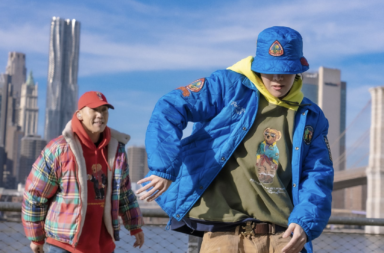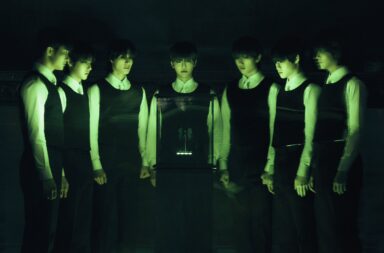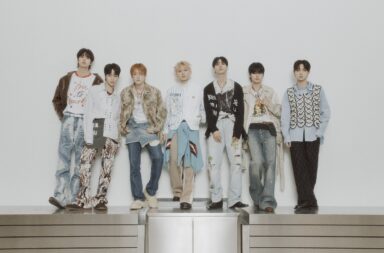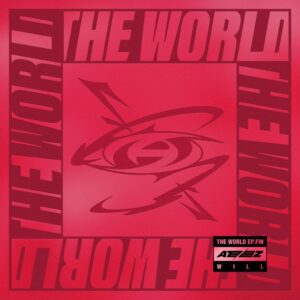
I think it is fair to say that Ateez have had a pretty good year. Aside from continuing their bombastic Break the Wall tour across Europe and Asia, their ninth EP, The World EP. 2: Outlaw, became their most successful comeback over the summer. This was in no small part thanks to the lead single “Bouncy”, a relentlessly fun, tongue-in-cheek, Tiktok-ready bop (I will admit my bias here—this song was, easily, my most played in this year’s Spotify Wrapped). It ushered in the group’s 5th anniversary this October, and now, in December, that is marked by the group’s second studio album, The World EP.Fin: Will.
As much as a mouthful as the title might be, it is also an indication of a turning point in the group’s sound. After five years, as group leader Hongjoong noted in an official press conference, this album serves as the marker for the group’s new direction. By trying out both new styles and new formations—this album contains three unit songs and a solo for the first time—the group is clearly searching for new elements to add to their sound. Looking for new angles is hardly a novel approach to a new album, and ultimately it is not found here among this selection of tracks. While there are ample moments of fun, creativity, and experimentation, EP.Fin: Will feels like a notably small step into the future of possibilities for this most dynamic and energetic of K-pop groups.
The album’s title track offers a neat summary of the overall tone of the album. Playing with Afrobeat and dancehall stylings, “Crazy Form” initially seems to present us with all of the bombast we come to expect from Ateez. We have all the cocky vocals, driving beat, and bragging lyrics we come to expect from 4th generation hype songs.
Oh, have you been to all continents?
Going up, my stock index is a red light
Keep putting comma on my paycheck
My green flag still waving
Its confidence is undeniable. However, after the left-field swaggering silliness that was “Bouncy”, the potential of “Crazy Form” to really live up to its title feels unused. The final refrain of the song ramps the energy up to the more familiar heart-pumping levels, but it is a loss to not have that feeling throughout.
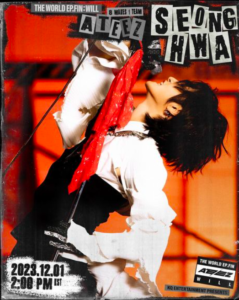
Sneaking in a lot more musical intrigue is the track that follows, “Arriba”. Playing with tinkling Latin-esque melodies under cascading vocals, the song throws in mimics of trumpets and a final flute flourish that are far more distinctive. This is a stark contrast to “Crazy Form” and the two preceding tracks that open the album, “We Know” and “Emergency”. All three of these songs slip slightly into underwhelming territory in their standard mid-tempo beats and unexciting uses of synths. “Arriba” isn’t exactly a 180-degree switch, but the musical touches, along with the changes in rhythm and vocal experimentations of the members, make it stand out. In particular, Seonghwa and Yeosang’s expressiveness, and Mingi’s playfulness in his rap section, are highlights.
In terms of new directions, the most obvious iteration of this is in the unit songs. Much like the earlier section of the album, these vary in distinctiveness, but when they work, they shine. The strongest is “MATZ”, from Hongjoong and Seonghwa, a hip-hop number that feels creative in its arrogance where “Crazy Form” and “Emergency” follow.
Around the world, take a whirl, quickly unpacking, tracksuit mode
Gentleman, Hongdae time attack then
Quickly fly, run to Incheon, airport fashion, that
Was left to the brand, little by little
These lyrics, delivered effortlessly by rapper Hongjoong and with an audible smirk by Seonghwa (who was originally supposed to debut as a rapper before becoming a vocalist), are sly and entertaining. Moreover, the lyrics are even met with a tempo change to raise the heart rate in the final verse. This is the work of confident artists.
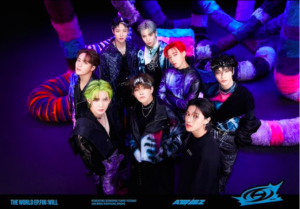
Perhaps unsurprisingly, the same is true of Jongho’s solo, “Everything”. As arguably among the strongest male singers of his generation, the song feels like it was sung with the direction of ‘just go and do what you do’. The power and softness that Jongho can switch between seamlessly is on display here, and while he singing a pretty standard ballad, his vocal tone adds the necessary depth to the track’s romantic drama.
The other two unit tracks on this album, “It’s You” and “Youth”, unfortunately fall short of these heights. The former of these, sung by Wooyoung, San, and Yeosang, suffers from vocal mixing that ends up blurring their distinctive tones together somewhat. In combination with the liberal use of the vocoder effect, it ends up undermining the smooth, seductive style of the song.
Similarly, in “Youth”, by Mingi and Yunho, whilst it is a delight to hear Mingi singing again, the auto-tuning of his voice does end up flattening in the vocals. Yunho’s voice is just distinctive enough to push through, once again, the overall effect doesn’t feel particularly unique. The song is a nice enough upbeat, mid-tempo track, with casual drum snares tapping out a rhythm in the background alongside light piano, a change from Ateez’s signature approach. It just doesn’t end up feeling much like them at all in this instance.
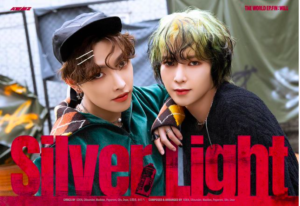
Other moments in the album seem to hark back to previous Ateez tracks to form their sound, and are more successful because of this. The highlight moment of “It’s You” is Wooyoung’s lyric of “fly[ing] endlessly like Peter Pan”, a nod to 2019’s “Wonderland”. Either side of the halfway point are the tracks “Silver Light” and “Dreamy Day”, which both feel like continuations of past Ateez eras. The former shares the glitchy, moody, slow electronica style of “Cyberpunk”, with Mingi and Yunho both getting to flex the depths that their voices can go to. “Dreamy Day”, in contrast, is a bright, euphoric track that echoes the joyousness of “Wave”. With its perky opening of pizzicato strings, the vocalists switch it up here with their higher registers, greeting a welcome mood change from the album’s sultrier openers.
Sewing all of these various moods and modes together are the musical interlude “Crescent Part. 2” at the album’s halfway point, and the outro “Fin: Will”. The first of these feels almost cinematic with its sweeping strings and gentle piano, but the sounds of rolling waves and distant ships tie everything back to the beachy memories that “Dreamy Day” also invokes. When this is paired with the woozy soundscape of “Fin: Will” and its constant questions, this idea of the sea and waves (which also feature in the backdrop here) starts to feel both cyclical and renewing.
Have memories of happiness ever lifted you up?
Have you ever been inspired by a dream that felt both far and clear?
These momentary markers seem to best fit with the idea of moving forward with the group’s sound after five years–the sea, after all, is a great way to represent something that is always moving and yet remaining constant. It is therefore slightly curious why these motifs rarely appear across the other tracks, with the possible exception of “Dreamy Day”. This remains a great symbol, and one with enough depth that they need not be afraid of it feeling similar to their earlier pirate concepts.
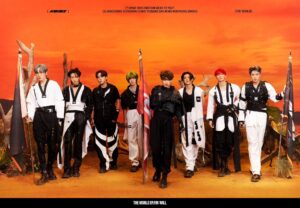
In the end, The World EP. Fin: Will” certainly makes moves in ways that Ateez have yet to fully explore. When these attempts are the most creative, like in “Arriba” and “MATZ”, their confidence in their creativity and ability to perform is clear. However, there is a lot surrounding this that feels just too generic to push the album forward as a whole. They understand the potential in playing with previous styles like those in “Silver Light”, but over-produced vocals and a slight reliance on the main elements of modern K-pop hype songs undermine EP.Fin: Will’s real ability to impress.
Ateez have never been a group that struggles with power or expression—how many other groups have a demon line? Hopefully, as they move forward to the next five years of their career, they won’t be afraid to make music that lets these strengths fully shine through.
(The Korea Herald. Images via Instagram and KQ Entertainment. Lyrics via Genius.)
